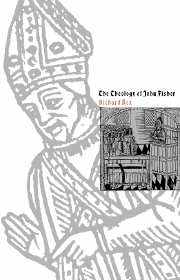Book contents
- Frontmatter
- Contents
- Acknowledgments
- List of abbreviations
- Introduction
- 1 Humanism and scholasticism in late fifteenth – century Cambridge
- 2 The preaching bishop
- 3 Fisher and the Christian humanists, 1500–1520
- 4 The Magdalene controversy
- 5 Fisher and the Catholic campaign against Luther
- 6 Authority
- 7 Faith, grace and justification
- 8 The eucharist
- 9 The inspiration and translation of scripture
- 10 The controversy over Henry VIII's first marriage
- 11 Conclusion
- Appendix John Fisher's library
- Notes
- Bibliography
- Index
4 - The Magdalene controversy
Published online by Cambridge University Press: 04 November 2009
- Frontmatter
- Contents
- Acknowledgments
- List of abbreviations
- Introduction
- 1 Humanism and scholasticism in late fifteenth – century Cambridge
- 2 The preaching bishop
- 3 Fisher and the Christian humanists, 1500–1520
- 4 The Magdalene controversy
- 5 Fisher and the Catholic campaign against Luther
- 6 Authority
- 7 Faith, grace and justification
- 8 The eucharist
- 9 The inspiration and translation of scripture
- 10 The controversy over Henry VIII's first marriage
- 11 Conclusion
- Appendix John Fisher's library
- Notes
- Bibliography
- Index
Summary
The picture of Fisher which emerged from the previous chapter was very much that of a Christian humanist, although neither so Erasmian as has sometimes been imagined, nor in the slightest degree intolerant of scholasticism. In the two humanist causes célèbres of the 151 os he adopted a position at once irenic and decidedly sympathetic to what is usually portrayed as the ‘humanist’ side. The man who regretted the Dominican assaults upon Reuchlin, endorsed the Novum Instrumentum, and unsuccessfully attempted to keep the peace between Lee and Erasmus would hardly be expected to have become entangled in protracted and rancorous theological disputes. Yet the subject of this chapter is just such an entanglement, an episode which raises serious, though not insoluble, questions about the nature and extent of Fisher's commitment to Christian humanism. For in 1519 he took an active part against the prominent French humanist Jacques Lefèvre d'Etaples in what was the third great ‘humanist’ controversy of the decade. Unduly neglected by historians, this controversy over the identity of the woman celebrated in the Roman calendar under the name of Mary Magdalene was potent in its own day. In some ways a ‘dry run’ for the Reformation debates over scripture, tradition and authority, it attracted far more attention, at least in France, than did the sparks flying in an obscure corner of Saxony over the head of a little-known Augustinian friar. The gist of the dispute is easily summarised. According to Lefevre, the liturgical figure of Mary Magdalene was a conflation of three separate women whose careers could be disentangled through a close examination of the Gospels.
- Type
- Chapter
- Information
- The Theology of John Fisher , pp. 65 - 77Publisher: Cambridge University PressPrint publication year: 1991



